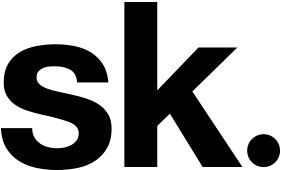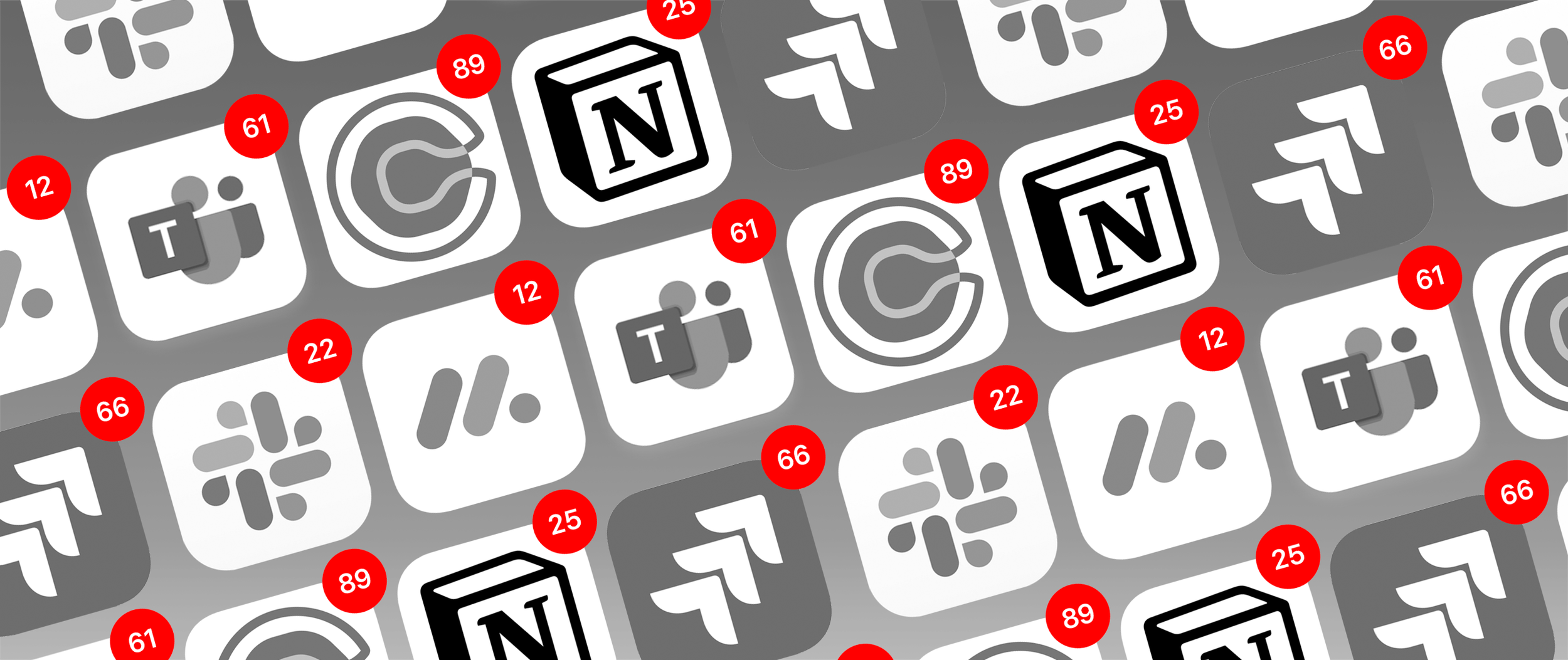Graphic by Alan Smithee
Imagine your typical morning at work. I'm sure it involves sitting down at your desk and mentally preparing yourself for the day ahead. You know where you are and where you need to be by the end of the day, so you take a deep breath and...
Three hours later, you've cleared your inbox and notifications, tweaked your calendar, cleaned up your desktop, and researched at least five new productivity apps - but your actual work, the stuff you get paid to do, remains untouched.
Welcome to the world of Grey Work.
Real work is slow, messy, quiet, and iterative; all deeply human traits. It happens only when we step away from dashboards and notifications, which means it can't be measured in a spreadsheet — but it's infinitely more meaningful.
Grey Work, whether you like it or not, is now what we're forced to do to pretend we are more innovative, forward-thinking, productive, and team-oriented at our jobs. The sad part is that Grey Work isn't really work at all; it's tech-enabled busywork disguised as productivity. And it's killing your focus, creativity, well-being, and ultimately, your soul.
The DNA of Grey Work and the Great Lie
Grey Work generally includes, but isn't limited to, endless Slack replies, click-looped research that leads nowhere, managing project management tools (yes, you read that right), and optimizing workflows more than actually using them. Essentially, it's anything that looks like work and feels like progress but isn't—because it's not. In short, it's the work we do to get to our real work.
The effects of Grey Work are legion: lost time from switching contexts and tackling shallow tasks, the constant erosion of deep, focused creative effort, the perpetuation of the insidious myth of multitasking, and an always-on culture. All of this leads to suffering. Projects suffer, strategies suffer, creativity suffers, and ultimately, people suffer.
The statistics on Grey Work are shocking. A recent study showed that nearly 75% of employees spend over 20 hours a week searching for information across various technologies instead of focusing on their actual jobs. This means workers spend up to half of their workweek on Grey Work, often relying on makeshift solutions and workarounds caused by disconnected tools, systems, and processes. As a result, workers frequently push their real work into after-hours and sacrifice personal time to keep up.
All of this leads to anxiety from always being behind, even when you're technically busy. The overdose of constant dopamine hits - that glorious beep-blop-boop of just one more notification - and the mental cost of doing work that doesn't feel meaningful or complete all manifest, as far as your brain is concerned, in fatigue, dread, and guilt.
The rise of Grey Work has led to a steady decline in work-life balance, and the irony is that the very tools marketed as efficiency boosters often create more to manage. Dashboards, checklists, and constant notifications masquerade as innovation, but in reality, they add layers of complexity and micromanagement. As a result, productivity is no longer measured by meaningful outcomes, but by visible activity—an endless cycle of proving busyness rather than making progress.
When Work Becomes a Game, Value Vanishes
Grey Work doesn't just clutter your day; it also reduces the worth of your effort. When decisions can be canceled, rescheduled, or postponed with a click, they lose importance. Meetings become optional, deadlines negotiable, and human interaction (once the foundation of accountability) gets replaced by dashboards and notifications.
When responsibility is diluted, so is meaning. What once required commitment, conversation, and follow-through now feels like a low-stakes game of moving pieces around. The result: effort itself is devalued, and the work that matters most is the first to suffer.
The Solution
I have an unpopular yet forward-thinking and innovative approach to this issue: fewer tools, more humans. If you have the power in your life to lead or help shape the conversation about how work flows, support anyone willing to reclaim focus by intentionally removing technology when possible. If you need a checklist, here it is:
1. Replace technology with human-centered activities whenever and wherever you can.
With the rise in popularity of remote work, this isn't always possible. But it should be a priority. Meetings can be just as disruptive if not planned, managed, and executed correctly. However, one in-person meeting or phone call can be worth 50 Slack messages and about 100 group emails.
2. Write on paper.
It doesn't sync to the cloud, and some will argue it doesn't allow for collaboration. And I say, good! It also doesn't require charging, and you don't need an internet connection to use it. Writing your thoughts and taking notes on paper leads to better retention, and you remember far more than you would with a keyboard.
3. Prioritize human work.
We can get so caught up in early adoption and the often hollow promise of technology's benefits that we forget how robust smaller systems relying on critical thinking, collaboration, creative problem-solving, and physical making can be.
4. Value quality over visibility. Outcome over optics.
What destroys productivity faster than anything is that, within the storm of Grey Work, performance is no longer measured by results — it's measured by how visible our activity is. Playing the game becomes systematically more important than showing real progress, at least mentally.
5. Return to real work as soon as humanly possible.
Real work is slow, messy, quiet, and iterative; all deeply human traits. It happens only when we step away from dashboards and notifications, which means it can't be measured in a spreadsheet — but it's infinitely more meaningful.
A Call to Action
My advice is to start by auditing your day to see how much of it is actual work versus gray work. Once you know that, decide what technology to cut and what tasks can be reclaimed by your mind, your hands, or a simple conversation.
Ultimately, we must recognize that we are not machines; we are humans, and whenever possible, we should strive to work like them again. Our nervous systems weren't built for constant noise, endless notifications, and being constantly "on." It's too much.
When the brain faces constant stress, it switches to survival mode, leading to short-term thinking, chronic anxiety, and a loss of perspective. This isn't a discipline issue; it's an overload issue.
A Reminder of the Fight for Better Work/Life Balance
The right to rest, dignity, and fair treatment in the workplace wasn't given to us - it was fought for. Through strikes, protests, and generations of collective effort, workers drew a clear line between their personal lives and their labor.
Yet, here we are, decades later, allowing technology to erase that line quietly. Work seeps into our homes, weekends, and minds. We answer emails at dinner. We check Slack on vacations. The boundary between work and life is no longer protected; it has become blurred.
If we want to honor the fight for workers' rights, we must defend what it achieved — not just with words or social media posts about balance, but through real action.
We've earned more than just a break. We have the right to reclaim our personal time.

